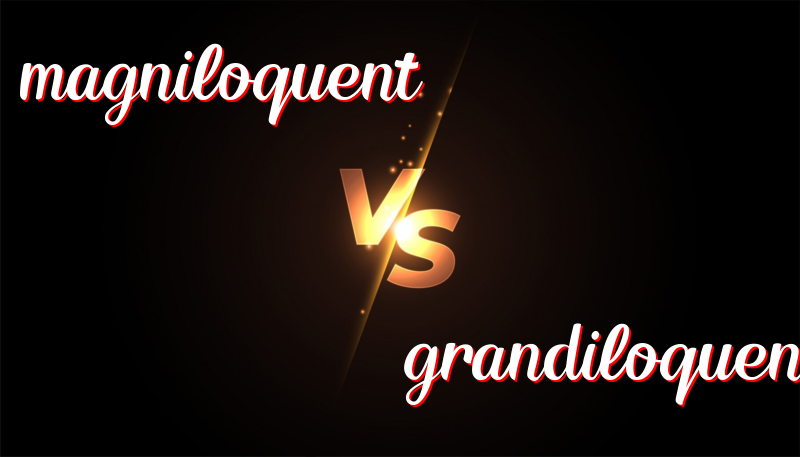英語單詞magniloquent 與 grandiloquent的區別
July 28, 2024
放大與誇大的詞彙:放大詞與誇大詞的差異
在英語中,“magniloquent” 和 “grandiloquent” 是兩個經常被誤用的詞彙,雖然它們之間的差別並不大,但了解它們的歷史和用法將有助於更準確地表達概念。
詞源與歷史
“Magniloquent” 起源於拉丁語“magniloquentia”,其中“magnus”意為“大”或“偉大”,“loqui”意為“說”. 此詞意指用龐大或偉大的語言來表達之意。
“Grandiloquent” 則源自拉丁語“grandiloquentia”,其中“grandis”意為“宏大”或“壯麗”,“loqui”同樣意為“說”. 此詞意在形容以宏大、誇張的語言來表達。
如何使用這些詞彙
雖然這兩個詞都涉及使用華麗的詞藻來表達自己,但其微妙的差異在於強調的側重點。“Magniloquent” 偏向使用偉大、宏偉的語言,而“Grandiloquent” 更強調豪華、誇張和膨脹的語言。
記住區別的小技巧
一個比較簡單的方法來記住這兩個詞的區別是將“magniloquent” 與 “magnificent”(壯麗的)連結,而將 “grandiloquent” 與 “grand”(宏大的)連結。這樣可以幫助你記住“magniloquent” 偏向宏偉的表達,而“grandiloquent” 偏向誇張的表達。
例句
Magniloquent的用法
- He gave a magniloquent speech that impressed everyone at the conference.
他發表了一篇宏偉的演講,使會議上的每個人都印象深刻。 - The author’s magniloquent style is admired by many literature enthusiasts.
該作家的宏偉風格受到許多文學愛好者的讚賞。 - Her magniloquent proclamation intended to inspire the audience.
她的宏偉聲明意在激勵觀眾。 - The magniloquent architect described his latest design with grand phrases.
那位宏偉的建築師用偉大的詞語描述了他的最新設計。 - Despite his magniloquent language, the professor’s message was clear and meaningful.
儘管他使用了宏偉的語言,教授的訊息還是清晰且有意義的。
Grandiloquent的用法
- The politician was known for his grandiloquent statements that often lacked substance.
這位政治家以其經常缺乏實質內容的誇張言論聞名。 - Grandiloquent language is not always effective in convincing people.
誇張的語言並不總是有效地說服人們。 - Her grandiloquent manner made her difficult to approach.
她誇張的舉止使人難以接近。 - The advertisement was full of grandiloquent promises that seemed too good to be true.
該廣告充滿了看似好得令人難以置信的誇張承諾。 - In an attempt to sound intelligent, he used an unnecessarily grandiloquent vocabulary.
為了聽起來聰明,他使用了不必要的誇張詞彙。
總結
總結來說,兩個詞彙都是用來形容使用華麗語言的方式,但 “magniloquent” 更偏向於宏偉和莊重的語言風格,而 “grandiloquent” 則更偏向於誇張和膨脹的語言風格。記住這些詞的詞源和語義差異,可以幫助你更精確地在適當的情境下選擇使用這兩個詞彙。

Leave a Reply
You must be logged in to post a comment.